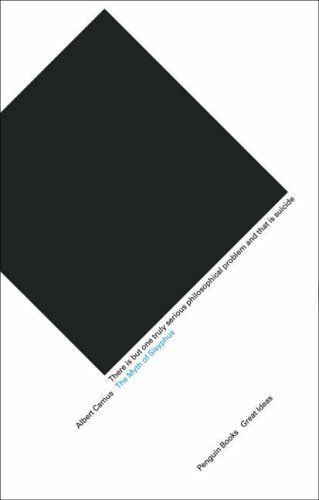
The Myth of Sisyphus
Throughout history, some books have changed the world. They have transformed the way we see ourselves - and each other. They have inspired debate, dissent, war and revolution. They have enlightened, outraged, provoked and comforted. They have enriched lives - and destroyed them. Now Penguin brings you the works of the great thinkers, pioneers, radicals and visionaries whose ideas shook civilization and helped make us who we are. Inspired by the myth of a man condemned to ceaselessly push a rock up a mountain and watch it roll back to the valley below, The Myth of Sisyphus transformed twentieth-century philosophy with its impassioned argument for the value of life in a world without religious meaning.
Reviews
Aksara@litlorn
Emilia@love4b00ks
Léa@swankadero
hileahrious@hileahrious
Özgür Özer@zgrzr
iamazoo@iamazoo
Derek@darikoz
Alex @sein
Xin Ma@xym
heleen de boever@hlndb
Lily Elizabeth Labella@lel_737
hermes@mysterytwink
Danial Imran @nyannyal
Vedat Güven@veduto
Prashant Prasad@prashprash
Kieran Wood@descent098
Serra@ser
Lucie@alphimystia
juana de arco si estuviera cronicamente online@peperina_2004
Amelia @bonesofangel
refutabilitas@d333cimal
Elou@h0jia
pavithra@derogaytoree
Rino Montiel@rino
Highlights
Luc@sevenless
Sadie Hoffman@sadieolympia
Page 21
Sadie Hoffman@sadieolympia
Page 19
Sadie Hoffman@sadieolympia
Page 17
Sadie Hoffman@sadieolympia
Page 14
Sophía Allan@shoppy
Page 17
Sophía Allan@shoppy
Page 12
bella <3@bellaheart
bella <3@bellaheart
bella <3@bellaheart
mari@maihq
Page 40
mari@maihq
Page 35
mari@maihq
Page 12
juana de arco si estuviera cronicamente online@peperina_2004
Bianca Miller @biancamiller
Bianca Miller @biancamiller
Bianca Miller @biancamiller
hermes@mysterytwink
Page 102
hermes@mysterytwink
Page 4